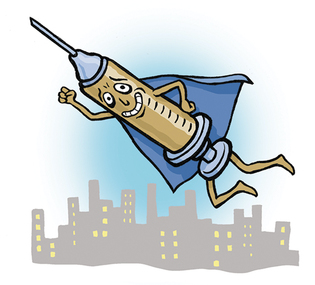 loading
loading
FindingsYes, you should get your flu shotThey’re good, even when they’re not very good.  Gregory NemecView full imageFlu vaccines are spotty. They can go from reasonably effective one year to only halfway decent the next. That reputation is one of several popular excuses for people to skip them. And that’s a problem. It turns out that even a seemingly lousy flu shot saves tens of thousands of lives if enough people line up for it. A team of Yale researchers led by epidemiology professor Alison Galvani used a mathematical model to predict how many lives a weak flu vaccine could save. They found that even a vaccine that’s only 20 percent effective can be powerfully protective. If 43 percent of the US population gets the jab in a given year, 21 million infections and 61,812 deaths can be avoided that year. In fact, all things being equal, if fewer people get flu shots, their absenteeism will lead to far more deaths than a less-effective vaccine will. “It is extremely important to get vaccinated, no matter how effective the vaccine is,” says postdoctoral associate Pratha Sah, first author of the study. (It appeared online in PNAS on April 30.) Age factors in, too, according to the model. A relatively effective vaccine is best distributed to younger people; they are most responsible for transmitting the flu. This past season, the vaccine was about 36 percent effective, favoring vaccination of school-aged children and young adults. (The average efficacy is about 45 percent.) But if the vaccine is comparatively weak—as during the 2004–2005 season, when efficacy was just 10 percent—it’s “extremely important,” Sah says, “to target elderly and other age groups that are particularly susceptible to flu.” Why? Because when “the herd immunity is not that strong,” disease can spread rapidly. People tend to say, “I’m healthy, I don’t get the flu, so I don’t need to get vaccinated,” Sah notes. “But it’s not just about you, right? When you vaccinate, you are not just protecting yourself.”
The comment period has expired.
|
|